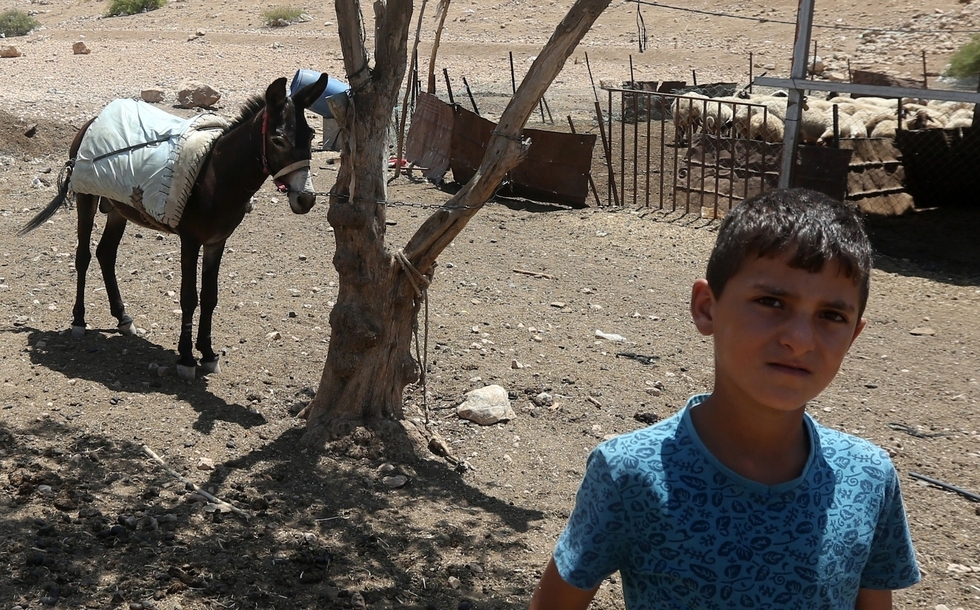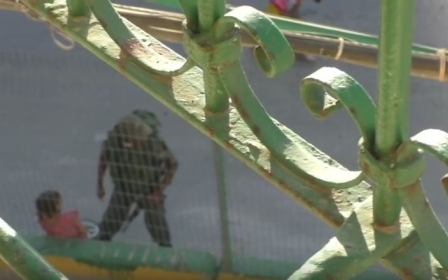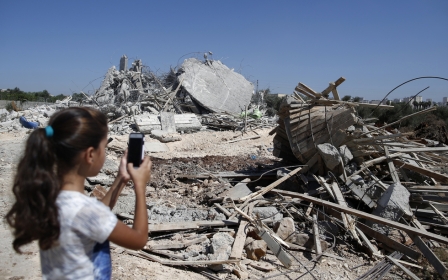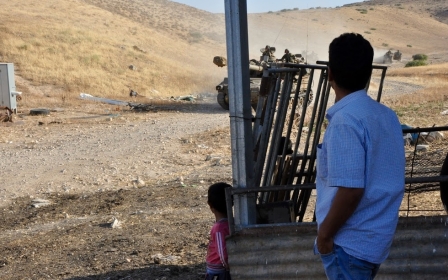Israel resells confiscated donkeys, stirring Palestinian outrage

"Forty donkeys for sale," reads a notice in Palestinian newspapers. Nothing out of the ordinary about that, except for the fact that the advertiser is the Israeli army.
Palestinians say the army is trying to sell back the very animals it seized from them in the occupied West Bank's Jordan Valley.
Israeli authorities say they round up wandering livestock in the interests of public safety, especially to reduce road accidents.
Palestinians, however, see a policy of confiscations and demolitions aimed at pushing them out of the valley that runs along the border with Jordan.
The valley has valuable water resources and farmland and is seen by Israel as vital to its strategic defence.
The donkeys will be auctioned off if unclaimed by their owners, the Arabic-language text announced, but reclaiming their own property is costly.
Arif Daraghmeh, head of a council of 26 hamlets in the valley's Al-Maleh district, said they have to pay fines of up to 2,000 shekels ($526) for each donkey.
COGAT, Israel's defence ministry unit that coordinates Israeli activities in the West Bank and Gaza, says that animals roaming unsupervised are a public menace.
Since the army has been rounding them up, "road accidents have fallen by 90 percent", it said, adding that the fines are levied to cover the costs of catching and looking after the donkeys.
The public offer to sell 40 head is unusual, said Daraghmeh, only the third in the past two years, before which there were none.
But confiscations, he said, are nothing new.
Firing zones
Sliman Besharat, 60, said his goats, housed under a shelter of sacking, have in the past been quarantined by Israel.
Like Daraghmeh, he sees a strategic aim behind the seizures.
"By confiscating animals and agricultural equipment and demolishing houses, animal shelters and other structures, the Israelis are putting pressure on the Palestinians to leave the Jordan Valley," which makes up a third of the West Bank, he said.
"Whoever controls the valley controls the border (with Jordan) and access to water and farmland," resources vital for local Palestinians who live from agriculture and livestock, Besharat said.
That is the case with Yusef, who was watching over his 80 cows and their calves while keeping one eye on the road used by Israeli military vehicles.
Behind him stood a sign on a concrete block warning in Hebrew, Arabic and English: "Firing zone, entry forbidden."
The Israeli army has turned 18 percent of the West Bank into training grounds, according to United Nations data. Nevertheless, 6,200 Palestinians still live in such areas.
In the Tubas area where Yusef lives, more than 800 people remain with their cattle on land Israel has designated as firing ranges.
The army, he said, can expel them and seize their livestock at any time.
"The soldiers load them on trucks and tell us that we're in a closed military zone," he said, brandishing a stick to move his emaciated animals.
"Or they come through in their tanks and nothing survives, not a concealed bird's egg or a baby gazelle lying on the ground."
Yusef said he has in the past lost dozens of animals, confiscated or dead of thirst through lack of access to water.
Struggle for water
Just a short distance from the banks of the River Jordan, the vast majority of Palestinian residents are not connected to water and must buy it at great expense, the UN says.
About 90 percent of the valley is in the West Bank zone known as "Area C", which is under full Israeli control.
It is "virtually prohibited for use by Palestinians and reserved for the Israeli army or placed under the jurisdiction of the settlements", where 9,500 Israelis live and farm, the UN says.
Water consumption in some places is a mere "20 litres a day, one fifth of WHO (World Health Organisation) recommendations", the UN says.
On the rocky hillside that rises behind Yusef's cows, he said a pipeline carries water that animals were once free to drink to a settlement.
"Before, we drank the water at its source," Yusef said. "Now the settlers bathe in it."
New MEE newsletter: Jerusalem Dispatch
Sign up to get the latest insights and analysis on Israel-Palestine, alongside Turkey Unpacked and other MEE newsletters
Middle East Eye delivers independent and unrivalled coverage and analysis of the Middle East, North Africa and beyond. To learn more about republishing this content and the associated fees, please fill out this form. More about MEE can be found here.




